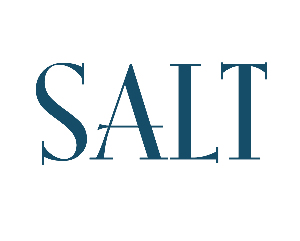Salt goes lighter on NZ equities in both growth and income funds
The Salt Sustainable Growth Fund is currently underweight New Zealand equities and the Sustainable Income Fund has reduced its exposure to NZ shares as the local market continues to underperform the major global equity markets.
Thursday, July 18th 2024, 6:00AM
by Jenny Ruth

In its latest Global Outlook commentary, Salt notes that the NZ equity market posted a 3.2% loss for the June quarter, “erasing its rather anaemic 2.8% March quarter gain and thereby moving into slightly negative returns on both a 2024 year-to-date and one-year basis.”
Salt says that was the outcome it had expected, given the very tight monetary policy the Reserve Bank has maintained.and ever-worsening domestic sentiment.
“There is simply no real catalyst at present for a recovery in performance by the NZ equity market, and the best approach at home is probably to be incrementally accumulating quality cyclicals, ahead of the inevitable point when the RBNZ eases policy and investors begin to pre-position for a 'green shoots' recovery dynamic which should be visible by mid-2025.”
Salt expects the RBNZ will first cut its official cash rate, currently at 5.5%, in November and a growing number of economists agree.
“Investors would typically wait to see definitive evidence of a shift in policy bias away from tightness and more supportive sentiment readings and could potentially begin allocating more to NZ shares by year end,” Salt says.
“However, the proviso is that as international shares have now outperformed domestic equities by so much for so long, institutional asset allocators probably have a high bar for deploying funds locally.”
The Salt Sustainable Growth Fund's NZ equities weighting currently sits at minus seven percent compared to its strategic allocation level.
Salt says the fund's objective is to outperform the NZ CPI by 5% over a rolling five-year timeframe, “an thus it is important to tilt its asset mix fairly aggressively against underperforming asset classes.”
Local equities have underperformed both domestic bonds and bank bills for the last year and even over a three-year annualised period, Salt says.
The income fund currently has a 44% weighting to NZ shares, including listed property, compared with almost 50% at the beginning of 2024, although it is above its strategic neutral level of 37.5%.
“This is justified due to the considerable dividend yield advantage still achievable within the domestic market from stable and well-established industry operators,” Salt says.
| « [GRTV] FMA monitoring gives FAPs eight out of 10 | Perpetual changes bathwater at Castle Point » |
Special Offers
Comments from our readers
No comments yet
Sign In to add your comment
| Printable version | Email to a friend |



